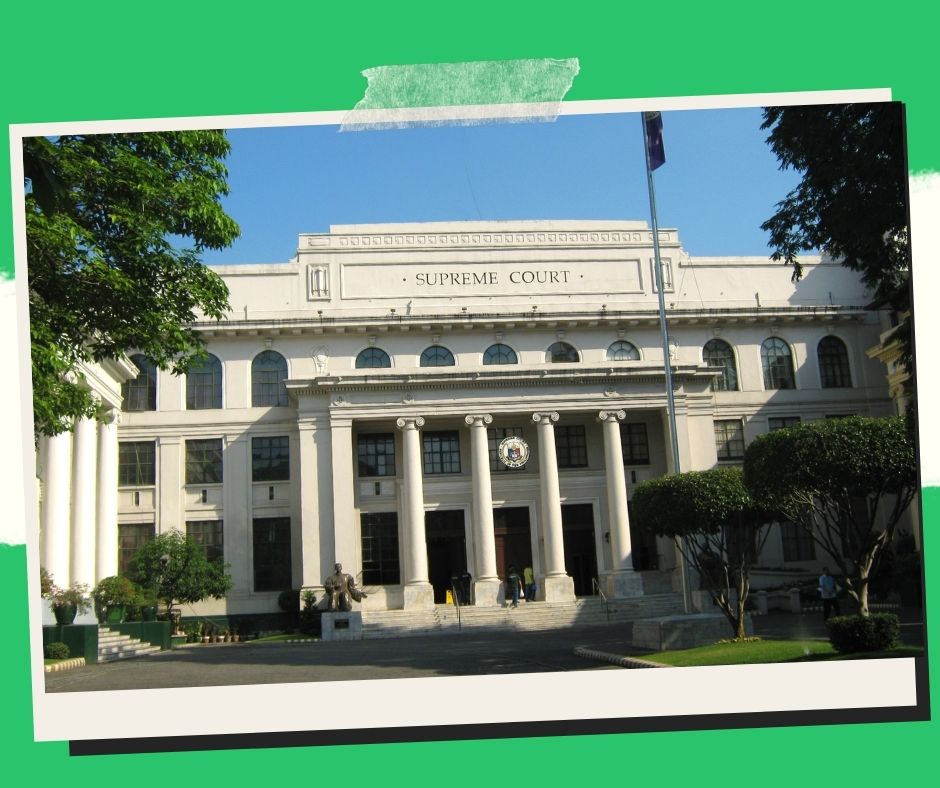
The Supreme Court rules that the PhiLSAT eligibility requirement is unconstitutional.
The Supreme Court upheld the Legal Education Board’s (LEB) jurisdiction but declared the requirement that students pass the Philippine Law School Admission Test (PhiLSAT) before being allowed to pursue a law degree to be unconstitutional.
The issue was resolved on November 9 by a 13-1 vote, with the LEB Memorandum Order (LEBMO) No. 7-2016 on the PhiLSAT requirement being declared “unreasonably exclusionary, restrictive, and qualifying” by the SC.
The Court explained that LEB’s requirement that prospective students take the PhiLSAT is not inherently unconstitutional as long as the results are only advisory, and law schools retain the discretion to accept or reject the applicant based on their policies and standards.
However, as an eligibility requirement, the PhiLSAT is not a legal means of obtaining the State’s lawful subject.
The ruling upholds its decision from last year, which declared unconstitutional paragraph 9 of the LEBMO, which states that all college graduates or graduating students must pass the PhiLSAT in order to be admitted to any law school in the Philippines.
The Philippine Association of Law Schools (PALS) has recently requested clarification on the PhiLSAT’s status and treatment.
Insofar as it prescribes a passing score to qualify for admission to a law school, PALS claims the requirement infringes on academic freedom.
Prohibitive
“It is evident that unless prospective students have a certificate of exemption, they are compelled to take and pass the said exam as an eligibility requirement for law school,” the SC said in its latest resolution. Law schools are prohibited from accepting prospective students who do not meet the stated requirements under penalty of sanction or fine.”
“As a result, it would be preferable to repeal all remaining provisions.” When the LEB meets with law schools or PALS for genuine and meaningful discussions on a possible acceptable replacement for the current PhiLSAT, it will have a clean slate, free of any arbitrary preconceived ideas,” the Court stated.
The imposition of a minimum passing rate infringes unreasonably on schools’ ability to choose who to accept as students, according to the ruling.
“Requiring schools to accept only those who took and passed the exam amounts to the State exercising dictatorial control over them through LEB, and it violates the Constitution’s intent.”
Furthermore, the Court upheld its decision that Section 17 of LEBMO No. 1-2011, which prohibits accepting applicants for the Master of Laws without a Bachelor of Laws or Juris Doctor degree, is void because it infringes on the school’s right to decide who to admit to their graduate degree programs, and that LEB issuances prescribing the qualifications and classifications for faculty members, deans, and deans of graduate schools of Law violate the academic freedom of a school.
LEB’s clout
The LEB was established by former President Fidel V. Ramos’ signing of Republic Act (RA) No. 7662, also known as the Legal Education Reform Act, on December 23, 1993.
The agency oversees and accredits law schools, establishes minimum standards for admission and minimum qualifications and compensation for faculty members, prescribes basic curricula for the course of study aligned to the requirements for admission to the Bar, law practice and social consciousness, and other courses establish a law practice internship as a requirement for taking the bar and performs other functions and responsibilities.
The Court emphasized that, while it recognizes and upholds the LEB’s authority to carry out the law’s purpose, the disputed provisions unduly expand the agency’s authority by giving a meaning to the term “legal education” that is inconsistent with the law’s clear intent.
“To be clear, the Court reiterates its position that it will not usurp the powers vested in the LEB by Congress.” However, nothing in RA 7662 says that the LEB has exclusive authority over all matters relating to legal education, including the Supreme Court. In fact, a fair and careful reading of the law would support the conclusion that Congress intended for all stakeholders to have a say in legal education matters,” the Supreme Court stated.
The LEB’s exercise of authority must be strictly supervisory and regulatory, not controlling, according to the SC.
Save/Share this story with QR CODE
Disclaimer
This article is for informational purposes only and does not constitute endorsement of any specific technologies or methodologies and financial advice or endorsement of any specific products or services.
📩 Need to get in touch?
Feel free to Email Us for comments, suggestions, reviews, or anything else.
We appreciate your reading. 😊Simple Ways To Say Thanks & Support Us:
1.) ❤️GIVE A TIP. Send a small donation thru Paypal😊❤️
Your DONATION will be used to fund and maintain NEXTGENDAY.com
Subscribers in the Philippines can make donations to mobile number 0917 906 3081, thru GCash.
3.) 🛒 BUY or SIGN UP to our AFFILIATE PARTNERS.
4.) 👍 Give this news article a THUMBS UP, and Leave a Comment (at Least Five Words).
AFFILIATE PARTNERS

World Class Nutritional Supplements - Buy Highest Quality Products, Purest Most Healthy Ingredients, Direct to your Door! Up to 90% OFF.
Join LiveGood Today - A company created to satisfy the world's most demanding leaders and entrepreneurs, with the best compensation plan today.



 Business Technology, Finance Technology & Information Technology
Business Technology, Finance Technology & Information Technology





